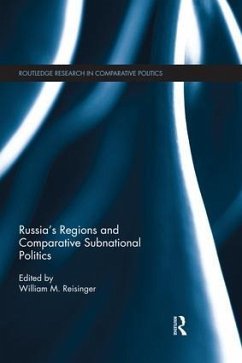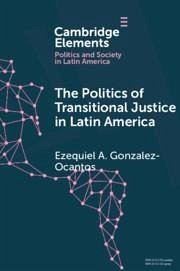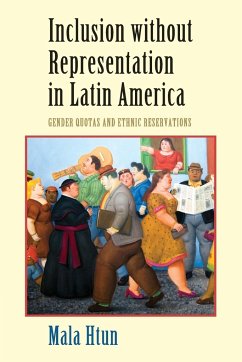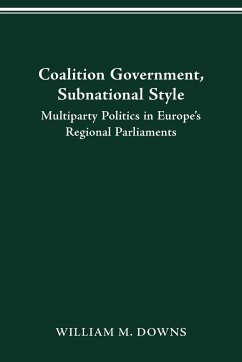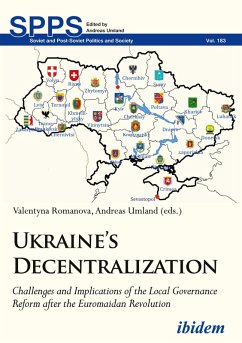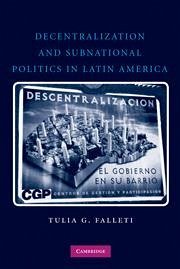
Tulia G Falleti
Broschiertes Buch
Decentralization and Subnational Politics in Latin America
Versandkostenfrei!
Versandfertig in über 4 Wochen

PAYBACK Punkte
19 °P sammeln!




Tulia G. Falleti explains the different trajectories of decentralization processes in post-developmental Argentina, Brazil, Colombia, and Mexico, and why their outcomes diverged so markedly.
Tulia G. Falleti is an Assistant Professor of Political Science at the University of Pennsylvania. Her work on decentralization, federalism, and research methodology has appeared in the American Political Science Review, Comparative Political Studies, Publius, Qualitative Sociology, Critique Internationale (France), Desarrollo Económico (Argentina), Política y Gobierno (Mexico), and Sociologias (Brazil), as well as in edited volumes published in the United States, Argentina, and Brazil. She has received awards and fellowships from the Social Science Research Council, the United States Institute of Peace, the Ford Foundation in conjunction with the Latin American Studies Association, and the Ministry of Science, Technology, and Productive Innovation of Argentina. In 2006, she earned the Gregory Luebbert Award from the American Political Science Association for the best article in comparative politics for her article 'A Sequential Theory of Decentralization: Latin American Cases in Comparative Perspective.'
Produktdetails
- Verlag: Cambridge University Press
- Seitenzahl: 312
- Erscheinungstermin: 12. April 2010
- Englisch
- Abmessung: 226mm x 152mm x 20mm
- Gewicht: 408g
- ISBN-13: 9780521736350
- ISBN-10: 0521736358
- Artikelnr.: 28517004
Herstellerkennzeichnung
Libri GmbH
Europaallee 1
36244 Bad Hersfeld
gpsr@libri.de
Für dieses Produkt wurde noch keine Bewertung abgegeben. Wir würden uns sehr freuen, wenn du die erste Bewertung schreibst!
Eine Bewertung schreiben
Eine Bewertung schreiben
Andere Kunden interessierten sich für




